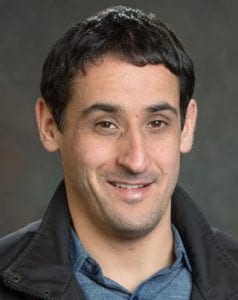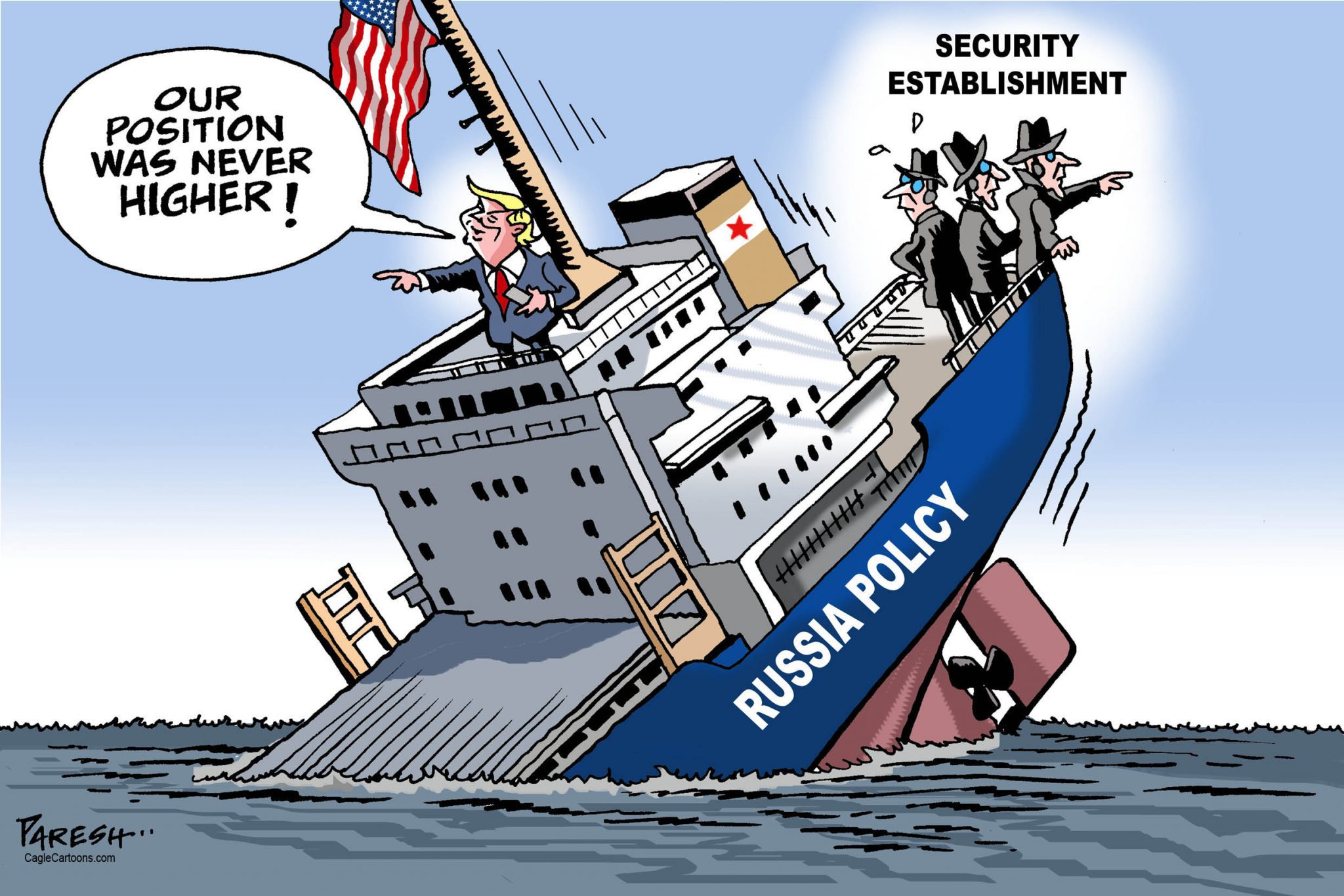BY JEREMY KUZMAROV
 Throughout the summer, American media have been filled with hysterical and sensationalistic articles about Russia and the supposed evil of its president Vladimir Putin.
Throughout the summer, American media have been filled with hysterical and sensationalistic articles about Russia and the supposed evil of its president Vladimir Putin.
Last week, the Wall Street Journal’s front page article, however, presented a clue that Putin may actually not be that evil.
The piece profiled Putin’s central banker, Elvira Nabiullina, whose monetary policy has stymied the exodus of Russian wealth abroad, brought inflation to record lows and stimulated foreign investment in Russia.
Prior to Putin’s access to power in 2000, the Russian economy was in ruins as a result of ill-fated privatization and deregulatory policies that had been imposed by President Boris Yeltsin at the behest of his American advisers [“dubbed Harvard Boys”].
Famed Russian author Alexander Solzhenitsyn stated that “Putin inherited a ransacked and bewildered country. And he started to do with it what was possible – a slow and gradual restoration.”
This was in part achieved by ordering oligarchs to pay taxes, by regaining national control over oil and gas deposits sold off to ExxonMobil and other Western oil companies under Yeltsin, and implementing policies that improved infrastructure, living standards, and led to a decrease in corruption and crime.
Joblessness, and poverty rates subsequently declined while wages improved. Putin also cut Russia’s national debt and put in place a successful pension system.
Political life even opened up, with anti-Putin candidates winning 266 city council seats in Moscow, as professor Nicolai Petro has pointed out in the Summer issue of the prestigious Fletcher School of Diplomacy Forum.
Democratic and Republican Party standard bearers have repeatedly accused Putin of aggression in Ukraine. However, they leave out the fact that the crisis there was precipitated by a coup d’états in 2014 that was supported by the United States.
Victoria Nuland, the head of the State Department’s European desk, admitted that the U.S. had spent $5 billion supporting opposition groups and was caught on tape scheming with the U.S. ambassador, Geoffrey Pyatt, to get Washington’s favored candidate, Arsenyi Yetseniuk, in office.
The uprising that developed in Eastern Ukraine also was locally supported.
Researcher Serhiy Kudelin reported that “despite Western accusations that the uprising was provoked and sponsored by Russia, it was in fact primarily a home-grown phenomenon … Political fragmentation, violent regime change … combined with emotion and fear played a crucial role in launching the armed rebellion.”
Political analyst Stephen Cohen adds that while Russia no doubt provided some assistance, “calling [the rebels] self-defense fighters is not wrong; they did not begin the combat; their land is being invaded and assaulted by a government [lacking] political legitimacy, [and] two of their regions having voted overwhelmingly for autonomy referenda.”
From 2014 to 2016, the Obama Administration provided nearly $600 million in security assistance to the Ukrainian military supplying it with counter-artillery radars, anti-tank systems, armored vehicles and drones as it shelled the rebel positions.
American military advisers were embedded in the Ukrainian Defense Ministry, planning military operations, and discussed logistical planning.
The Trump Administration then upped the ante by providing lethal military aid including anti-tank missiles.
So who is the aggressor?
And how would we react if the Kremlin sponsored a coup in Mexico and then armed the post-coup government against regional separatists who were more loyal to the United States and felt threatened by the new government?
With war I would imagine.
The greatest crime Putin has allegedly committed is interfering in the U.S. 2016 election on behalf of Donald J. Trump.
However, the evidence for this has not been conclusive. In January 2017, the intelligence agencies released a report so bereft of evidence that they could only make an “assessment,” which in intelligence speak is basically a guess. Much of the report focused on how Russian Television was an alleged propaganda outlet.
Vladimir Putin may not be a saint but he does have significant accomplishments as Russian president and is not the threat to world peace he has been presented as.
The incessant demonization of him and Russia has served to poison our political environment and divert attention from pressing social issues.
It has also resulted in a dangerous deterioration in relations between the two major world nuclear powers, which is detrimental to the interests of all humanity.
– Jeremy Kuzmarov teaches at Tulsa Community College and is author of three books on U.S. foreign policy, including his latest, The Russians are Coming, Again: The First Cold War as Tragedy, the Second as Farce,with John Marciano [Monthly Review Press, 2018].








